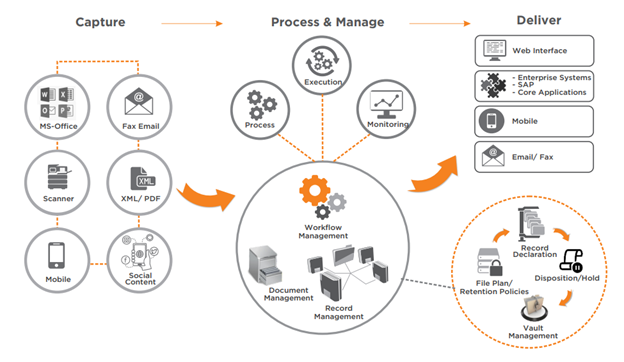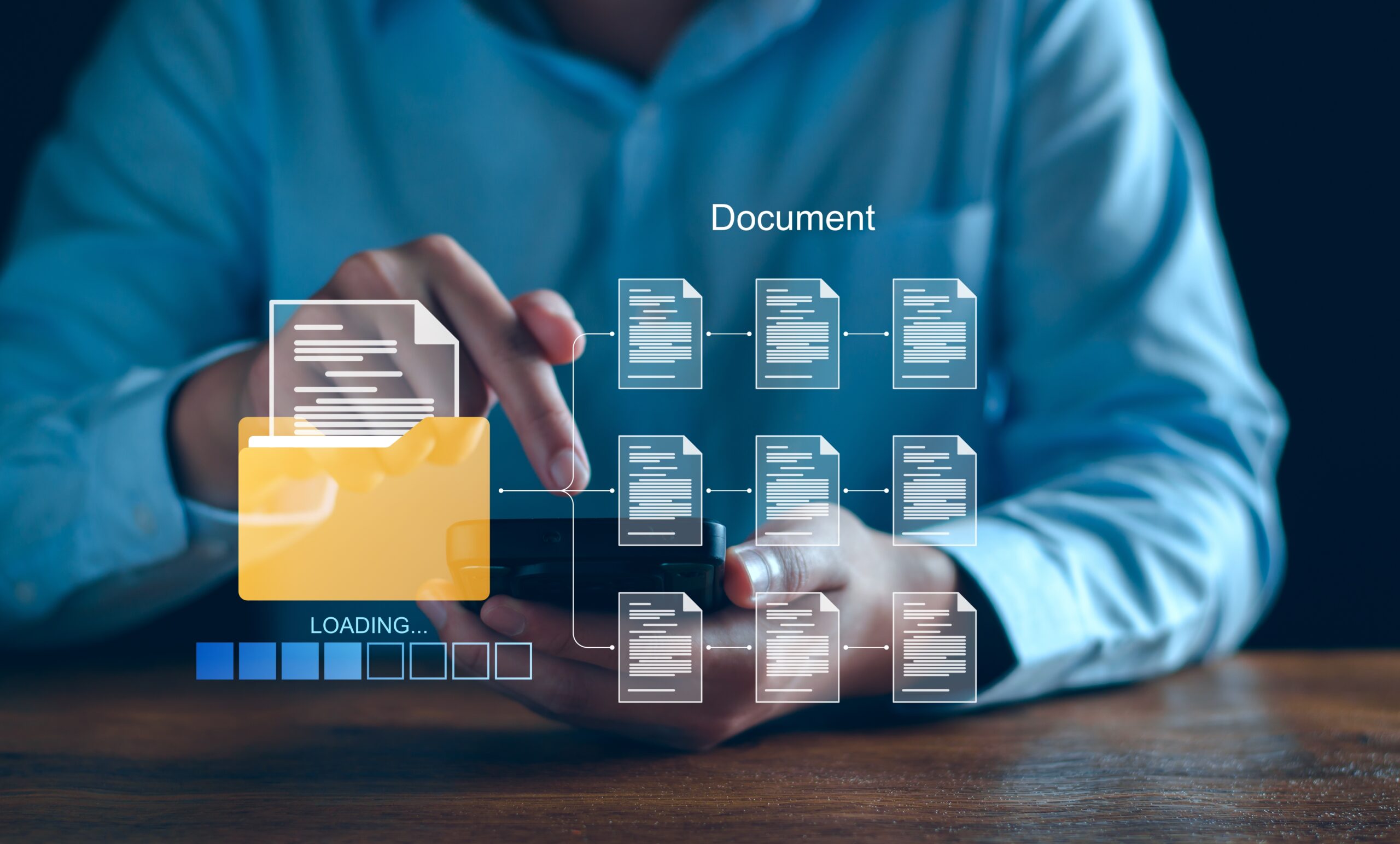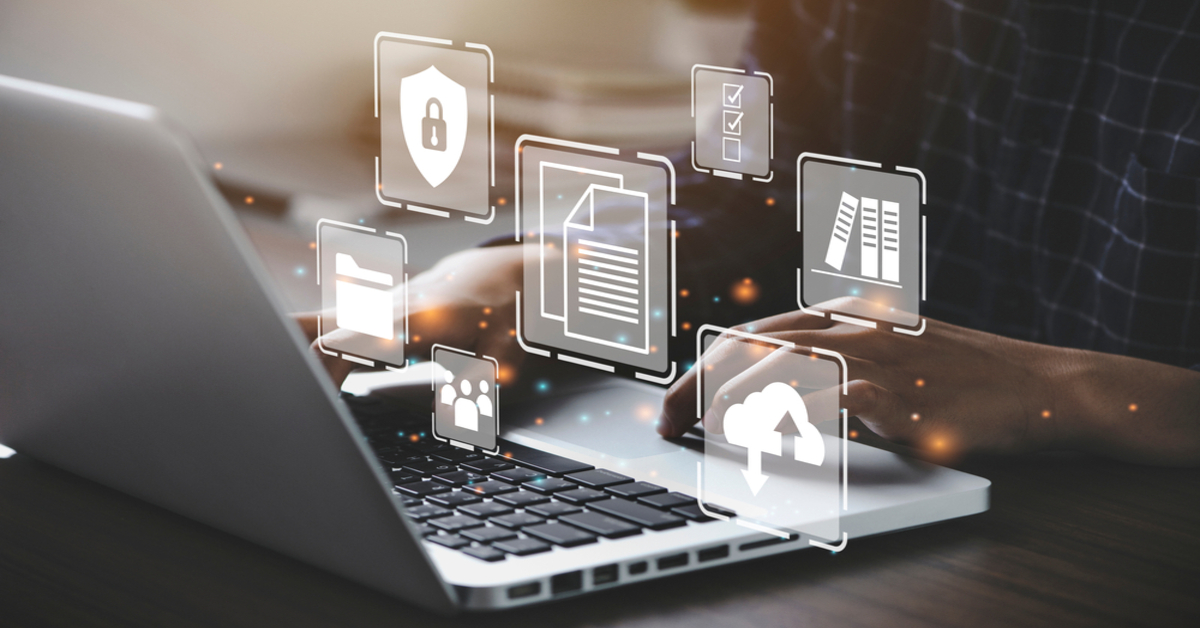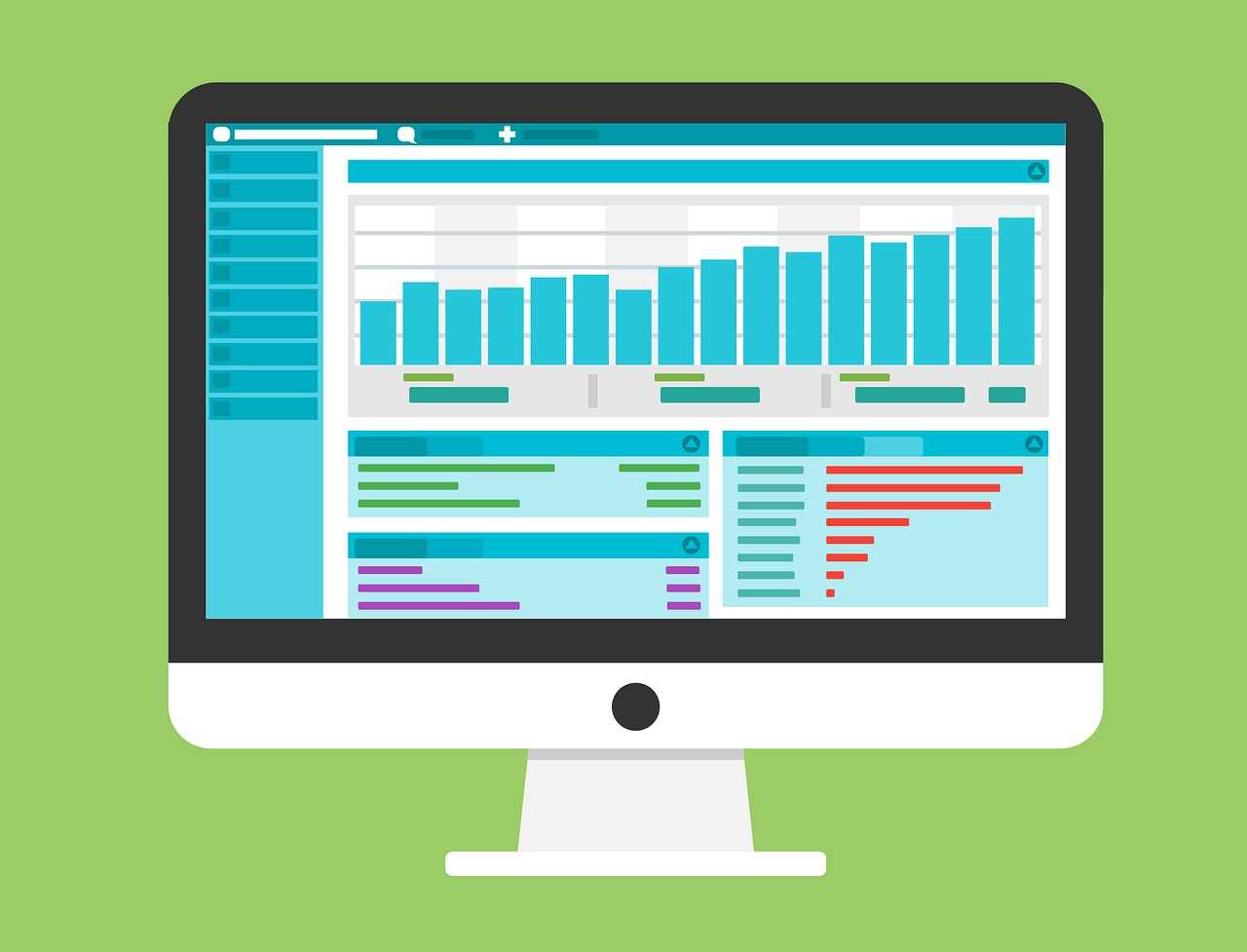To go by MarketWatch, ‘the global market size of EDRMS will reach 523.0 million USD in 2026 with a CAGR from 2021-2026.”
Why EDRMS?
Do you manage millions of documents? Is lack of collaboration hurting your organization? Is your data organized inefficiently? Is the storage cost high? or Are you at risk of data loss or security breach? In order to help you overcome these challenges, electronic document record management software (EDRMS) comes to the rescue.

Leveraging EDRMS: 8 Key Use Cases
1. Record Lifecycle Management
Record Lifecycle Management platform can help you manage your records from creation, storage, retrieval, archival to disposition, based on your organizational policies. Precisely, it:
- Handles all content types through the record lifecycle
- Stores records electronically in a cost-effective manner
- Implements flexible record management policies, thereby aiding in archival over extended periods
2. E-mail Archival
E-mails have mostly replaced physical correspondence and must be stored and archived per regulatory compliance. A electronic documents and records management platform helps in:
- Storing and archiving e-mails in a centralized repository, securing them, and providing backup & disaster recovery
- Seamlessly integrating with e-mail applications
- Defining retention policies for automatic operations
- Supporting legal discovery requests against litigations
3. Legal Hold
During ongoing litigations, a legal hold can be put on documents. An EDRMS can assist you in placing a legal hold by:
- Suspending or locking a single file or record for any edit
- Supporting multiple legal holds on the same files
- Disabling record destruction process until all holds are cleared
4. Social Records Management
Today, social has become the most active channel for communications. Users communicate with organizations across various social channels, including Facebook, Instagram, and others. An EDRMS can support social records management by:
- Monitoring social media chatter and automatically responding to messages/chats
- Segregating posts into various categories, such as requests, complaints, information, promoter, and others
- Storing and archiving social messages
- Defining social records message retention and disposition policies
- Providing a user-friendly interface and view of social media conversations
5. Compliance and Risk Management
An EDRMS enables you to be compliant with records management standards, including DoD 5015.02, VERS, ISO 15489, ISO 16175, and NRAA Oman. Furthermore, the software helps in:
- Meeting regulatory requirements based on the specific regional, country, or domain
- Securely storing and managing mission-critical records, with complete access control and audit logs
- Safeguarding you from accidentally deleting records
- Enabling accountability and managing corporate risk
6. Real-Time Document Tracking
Business leaders are required to track their documents in real time. An EDRMS helps in:
- Tracking status of a document
- Providing a simplified interface to locate physical records in a records storage facility
- Keeping detailed audit trails
- Generating comprehensive reports
7. User-friendly Interface
Users must not be slowed down when dealing with millions of records and they must have a simplified user interface. Here’s where an EDRMS helps in:
- Conducting day-to-day operations smoothly and managing user requests effectively
- Easing the process of searching and retrieving records
8. Retention Schedule and Disposition Requirements
Retention is an essential requirement for a records management solution. A well-coordinated EDRMS helps you to:
- Define retention policy and schedule, which should be easily configurable
- Secure and automate workflow for records archival and destruction, which drives efficiency when dealing with millions of records
In conclusion
A robust records management system is an absolute must for your organization. Read here to gain detailed insights into Newgen’s electronic documents and records management software. Furthermore, learn how the software helps you digitize your enterprise-wide, mission-critical documents and records to minimize corporate risk and increase accountability.
You might be interested in

22 Jan, 2026
Why storing everything is not the optimal email archiving strategy for 2026



